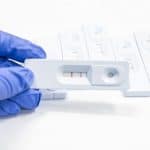- Prioritize Your Recovery
- Join A Support Group
- Self-Care & Healthy Activities
- Behavioral Therapy
- Outpatient Treatment Program
- Utilize Aftercare Resources
- Meth Detox
Methamphetamine (meth), including crystal meth, is a highly addictive substance that can have severe and long-lasting effects on your physical and mental health. If you or a family member may be addicted to meth, recovery can be challenging and relapse can happen.
However, many people find success with professional methamphetamine addiction treatment and behavioral therapy. Valuable relapse prevention tools, like support groups, counseling, and mindfulness activities, can help you maintain long-term recovery.
1. Prioritize Your Recovery
In the midst of struggling with methamphetamine abuse, you may find yourself choosing meth over friends, family, and healthy interests. You may have even lost relationships, jobs, or material things.
During early recovery, it can be tempting to repair the damage and gain things back quickly.
Although goals are healthy to have, putting too much stress on yourself can put you at risk for relapse. Putting your recovery first will help you maintain lifestyle changes that will help you improve your well-being and remain drug-free.
2. Join A Support Group
Support groups, like Narcotics Anonymous (NA) and Alcoholics Anonymous (AA), can connect you with others who have had similar experiences. There are NA/AA 12-step meetings available all over the world, even virtually, every day of the year.
The 12-steps are designed to help you recognize your powerlessness over meth and how a substance use disorder (SUD) has made your life unmanageable. You also learn the ways meth abuse has impacted loved ones, your behaviors, and how you react to life.
3. Self-Care & Healthy Activities
Long-term methamphetamine use, including crystal meth, can lead to numerous physical and mental health issues.
Physically, long-term effects of meth may include weight loss, tooth decay, and skin sores. Your mental health can also suffer, including psychosis, mood swings, and difficulty thinking.
Taking care of yourself as a whole is a vital part of the recovery process. Eating a well-balanced diet, light exercise, and checking in with your healthcare professionals can help you get back on track.
Finding a daily mindfulness activity you enjoy, like meditation and yoga, may help your mind focus more clearly. Activities like drawing, painting, and journaling can be a healthy outlet to express yourself and an enjoyable hobby.
4. Behavioral Therapy
According to the National Institute on Drug Abuse (NIDA), behavioral therapy is currently one of the most effective ways to treat drug addiction.
Behavioral therapy, like cognitive behavioral therapy (CBT) or contingency management, teaches you how to recognize and change unhealthy behaviors.
Behavioral therapy is an evidence-based treatment option offered at most addiction treatment centers, including both inpatient and outpatient programs. It is beneficial for drug and alcohol addiction but can also be used to treat co-occurring disorders.
5. Outpatient Treatment Program
Outpatient treatment, including partial hospitalization programs (PHPs) or intensive outpatient programs (IOPs), are valuable as a primary form of treatment or step-down level of care. You will be given a schedule of therapy sessions to attend each week, based on your individual needs.
Family therapy, group therapy, and behavioral therapy will help you learn more about addiction, how to change unhealthy behaviors, and apply skills in real-life situations.
6. Utilize Aftercare Resources
Aftercare services help you transition back into your daily life at a pace that works best for you. If you are not ready to return home following residential treatment, your case manager can connect you with local sober-living options.
If you are ready to live independently, your treatment team can help you find numerous local resources to help you get back on your feet. You can get help finding a job, enrolling in school, or finding support groups in your area.
Other programs, like counseling and mental health services, can help you stay focused on your recovery and increase the chance of success.
7. Meth Detox
Meth, including crystal methamphetamine, is an addictive substance that can lead to withdrawal symptoms when you stop. If you want to stop drug use and lower the risk of relapse, you should consider a medical detox program.
An inpatient detox program is a safe and comfortable environment that offers support and assistance on the next step in your treatment program. A team of professionals will monitor your meth withdrawal symptoms, including depression, anxiety, and cravings.
Addiction specialists will work with you during the detoxification process to develop a comprehensive treatment plan that fits your needs. If you would like to learn more about this process, please reach out to us today.
Sources
- Addiction and Health — Current Research On Methamphetamine: Epidemiology, Medical And Psychiatric Effects, Treatment, And Harm Reduction Efforts
- National Institute On Drug Abuse (NIDA) — What Are The Long-Term Effects Of Methamphetamine Misuse?
- National Institute On Drug Abuse (NIDA) — What Treatments Are Effective For People Who Misuse Methamphetamine?
Written by
Northeast Addition Editorial Team
©2024 Northeast Addition Center | All Rights Reserved
This page does not provide medical advice.




